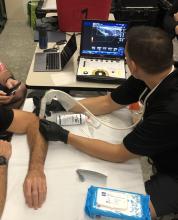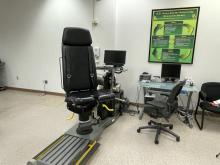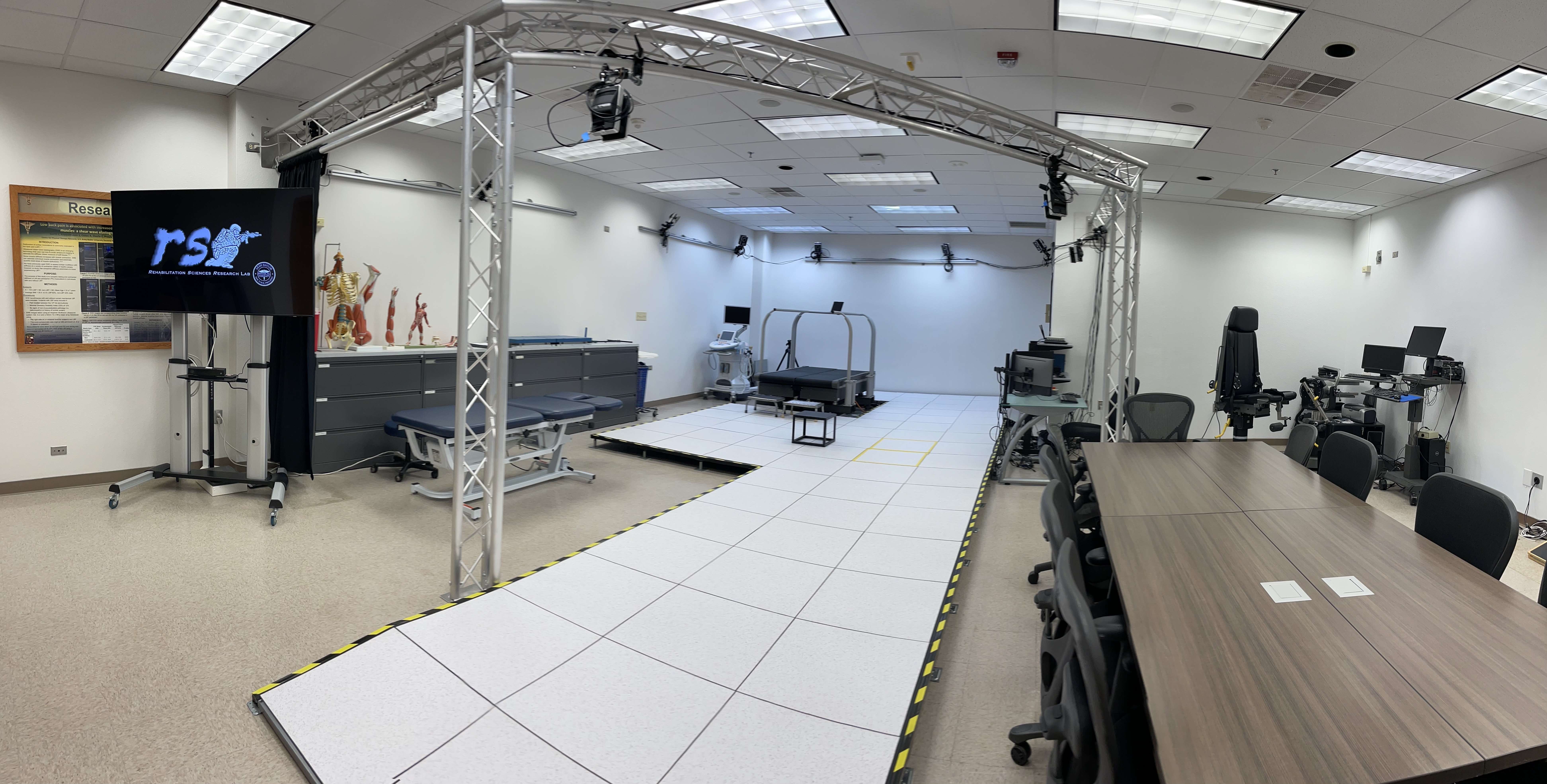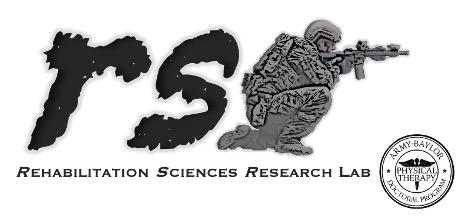Research Laboratory
The mission of the Rehabilitation Sciences Research Lab (RSR) is to promote military readiness through cutting-edge research and advanced evidence-based practice related to neuromusculoskeletal disorders, the leading cause of disability among members of the Uniformed Services.
The laboratory accomplishes this mission by producing and integrating the results of basic science, translational, and clinical research to develop strategies for the optimal prevention and treatment of neuromusculoskeletal disorders for military healthcare beneficiaries. The RSR is the primary venue for producing our clinical scientists and leaders of tomorrow through faculty directed, student-assisted research.
Research Focus Areas:
- Develop and optimize neuromusculoskeletal injury prevention and treatment strategies for translation into training and operational environment
- Leverage the use of technology to improve the evaluation and treatment of neuromusculoskeletal disorders
- Investigate physiological mechanisms underlying states of neuromusculoskeletal health and disease
- Identify and target factors associated with primary neuromusculoskeletal disorders in order to mitigate secondary injury and disease
- Explore strategies to improve physical therapy education and practice primarily and through interdisciplinary collaboration
Technologies Available:
The RSR is continually evolving and expanding the technologies at our disposal in order to maintain a robust research model that provides state-of-the-science, relevant evidence to enhance military readiness and physical therapy practice.
Current Technology Capabilities include:
- Ultrasound Imaging / Shear wave Elastography: These technologies provide a range of dynamic imaging capabilities of the musculoskeletal system, aiding in the diagnosis of neuromusculoskeletal pathology and the design of treatment programs to optimize muscular recovery
- Electromyography (EMG): Diagnostic and kinesiologic EMG capabilities provide the ability to quantify neuromuscular function in injury and disease and identify changes in motor behavior associated with motor learning and skill acquisition
- Wearable Sensors: An array of inertial measurement units and pressure sensors provide the ability to assesses postural control and gait parameters in both laboratory and free-living environments
- Vestibular Assessment: video head impulse testing provides the ability to assess the patency of the vestibular system and its contributions to sensorimotor function, balance impairment, and to track the efficacy of treatments designed to improve gaze and postural stability
- Kinematic and Kinetic Assessment: 10 Camera, Vicon 3D Video Motion capture system, Bertec split belt instrumented treadmill, and AMTI force plates. This equipment provides our lab the ability to investigate injury prevention, human performance optimization, and treatment paradigms across the spectrum of neuromusculoskeletal health and disease states to improve military readiness
Research Grants:
Program faculty continue to advance the frontiers of physical therapy practice by pursuing research grant funding. Our researchers currently have funded research projects awarded of over $5 million from the following agencies:
- Congressionally Directed Medical Research Program (CDMRP)
- Army Small Business Innovation Research Program (SBIR)
- Advanced Medical Technologies Initiative (AMTI)
Collaboration:
The RSR works vigorously to establish and maintain robust partnerships with military, civilian, and academic collaborators.
Current collaborations include:
- The Geneva Foundation
- BlueHalo LLC
- Pison Technologies Inc
- Novel Electronics Inc
- Military Performance Lab and Center for the Intrepid
- Military treatment facilities throughout the Department of Defense
- US Army Research Institute of Environmental Medicine
- Uniformed Services University
- United States Army Special Operations Command
- West Point WARRIOR Motion Analysis Laboratory
- Army-Baylor Orthopaedic Manual Physical Therapy Fellowship
- AllinaHealth Courage Kenny Rehabilitation Institute
- Rockefeller Neuroscience Institute
- University of Kentucky
- University of Utah
- University of Puget Sound DPT
- Texas State University
- University of Pittsburgh
- Oregon Health Sciences University
- University of Montana
- Emory University
- Eastern Tennessee State University
- Lincoln Labs
- Michigan University
- University of Rochester
- Johns Hopkins University
- University of Oregon
Promoting Readiness Through Research



